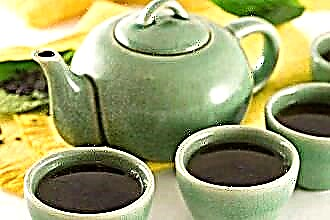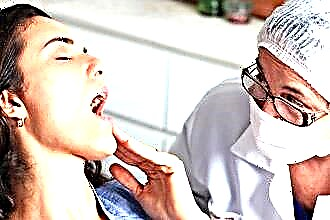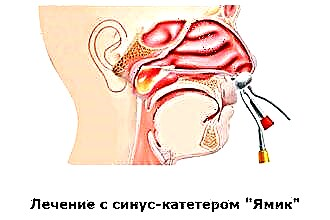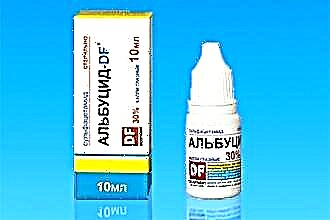The main problem of monastery tea is its rapidly expanding popularity and demand. "Too popular to be trusted, because the best is always hidden." And if suddenly it turns out that this composition is really the best of its kind, then a new objection arises: "Too good to be true." As a result, a paradoxical situation arises: in order to somehow "justify" "Monastic Tea", you will have to find its shortcomings in this review.
The history of creation, or the Legend of the revived recipe
 Shiarchimandrite Georgy (Yuri Yuryevich Savva) - the abbot of the Holy Spiritual Monastery - died in 2011. During his lifetime, he was called a mentor, spiritual father, healer of souls and bodies, herbalist. It was difficult to get to see him - sometimes you had to sign up for several months. And this despite the fact that Archimandrite George received people in need of advice and healing, without days off and holidays, sometimes up to 3 o'clock in the morning. Out of turn, seriously ill people turned to him, getting to the monastery in Timoshevsk (Krasnodar Territory) already on a stretcher.
Shiarchimandrite Georgy (Yuri Yuryevich Savva) - the abbot of the Holy Spiritual Monastery - died in 2011. During his lifetime, he was called a mentor, spiritual father, healer of souls and bodies, herbalist. It was difficult to get to see him - sometimes you had to sign up for several months. And this despite the fact that Archimandrite George received people in need of advice and healing, without days off and holidays, sometimes up to 3 o'clock in the morning. Out of turn, seriously ill people turned to him, getting to the monastery in Timoshevsk (Krasnodar Territory) already on a stretcher.
The archimandrite always treated with herbs, or rather, herbal compositions, the secrets of which he studied for several years in a row, first as a novice (in a monastery on the border with Romania), and then - living among monks on Mount Athos.
Thanks to the experience and insight of the abbot, the reception of each patient took no more than 5-10 minutes. At the same time, the archimandrite had an assistant - the monk Donat - to write out herbal recipes. However, all the same, the healer did not have time to help all those in need. As a result, the idea came up to make public and publicly available a recipe for such an infusion, which could be used to prevent and treat the most common ailments. And since throat and nose ailments were such frequent illnesses, Monastic Tea appeared, which helped to safely survive the long Russian "seasons of colds".
However, sellers began to call this herbal complex "Monastic tea". The word "tea" in the name of the composition appeared, apparently, by analogy with the classical tea brewing method, and the word "monastic" was fixed as a reference to the place of the "birth" of the recipe in its modern form.
By the way, sometimes, when describing the source of the origin of the original recipe, they recall some “northern monasteries of Ancient Rus”. But this seems unreliable - there is no evidence that the recipe was created in the "northern monasteries", and then, after centuries of oblivion, was revived by Archimandrite George. Much closer to the truth is the less mysterious, but more truthful, "Athos version" of the origin of the medicinal drink. Moreover, if we take into account the indisputable authority of the Athonite monastery, such a version is, rather, in favor of the reputation of a healing herbal complex.
The composition of "Monastic tea" - a synergistic effect of the composition
The composition of "Monastic Tea" is not hidden from consumers, which in itself is captivating. All 16 components are listed in the order of their quantitative proportion, as in classical recipe practice. The "secret" for the consumer is only the specific conditions of processing and storage of plants, as well as the collection time, which ensures the maximum efficiency of the product. But this is also a secret only for those who have no time to independently understand the intricacies and rules of herbal collection. True, these people can be understood, because there are many wisdom, and it is much easier and safer to buy a finished product.
 The real "secret" of the monastery tea lies in the synergistic effect of 16 medicinal ingredients: rose hips, sage, birch buds, nettle, thyme, immortelle, string, yarrow, wormwood, bearberry, buckthorn, linden, dried cress, motherwort, chamomile, dried flowers. That is, the whole "secret" is that each plant individually, when used, gives less therapeutic and prophylactic effects than all of them combined into a single composition.
The real "secret" of the monastery tea lies in the synergistic effect of 16 medicinal ingredients: rose hips, sage, birch buds, nettle, thyme, immortelle, string, yarrow, wormwood, bearberry, buckthorn, linden, dried cress, motherwort, chamomile, dried flowers. That is, the whole "secret" is that each plant individually, when used, gives less therapeutic and prophylactic effects than all of them combined into a single composition.
Brewing mistakes and the right way
There are no difficulties in brewing this "tea", but always in a hurry city dwellers sometimes make minor errors in preparation, which can somewhat reduce the effectiveness of the infusion:
 No. 1. Pour the contents into the teapot without additional grinding.
No. 1. Pour the contents into the teapot without additional grinding.
The classic recipe does not require additional processing of the contents of the package, however, experts recommend a little "wrinkle" the collection before brewing. They argue that this is how the plants release healing substances more easily.- No. 2. Infuse like regular tea.
If the tea leaf is brewed for about 5 minutes, then in order for the "Monastic gathering" to brew, you will need to wait about half an hour. Often, consumers do not stand this gap and, out of habit, drink the collection almost immediately after eating. - № 3. Abuse of the product.
Even plain water can be hazardous in disproportionate quantities. Moreover, one should not abuse a drug that produces a pronounced medicinal effect. A volume of 400-500 milliliters during the day is enough to maintain health. This volume is usually divided into either 2 doses of 200 ml, or 3 doses of 150 ml. In this case, brewing is carried out at the rate of 5 teaspoons per 1 liter. - No. 4. Low water temperature.
Today, many are already accustomed to the fact that some varieties of tea are best "revealed" if they are poured not with boiling water, but with "cooler" water (70-90 C). In the case of "Monastic tea", it is recommended to pour the mixture with water immediately after it boils, without waiting for it to cool. - No. 5. Throw away the cake after brewing.
The cake (brewing) retains a significant part of the healing properties after brewing. Therefore, experienced infusion lovers recommend applying it to the accessible affected areas of the mouth and nasopharynx.
Find out the price
Opinion of doctors and consumer reviews
Otolaryngologists took the new drug with varying degrees of readiness. Some - immediately took it "into service." Others decided to wait for the increase in positive statistics. Still others - approached the issue prudently, assessing, first of all, the prophylactic effect, while observing the therapeutic effect of "tea".
Stavitsky I. D. ENT (otolaryngologist):
«Of course, I am not able to carry out full-fledged clinical studies on my site, but based on the totality of personal impressions and on the basis of the opinion of my colleagues, I can say that “Monastery tea” would be good to use at least as an adjuvant in treatment».
Makhovaya L.P. otolaryngologist, doctor of the first category:
 «Here, tell me, what did your grandmothers offer you as a child, when your throat hurt? Drink tea with raspberries and lemon. And we trusted the grandmothers, because they would not advise bad things and because the wisdom of generations stood behind their advice. So I, without forbidding raspberries and lemon, would nevertheless want the “new” grandmothers to start advising their grandchildren “Monastic tea” with the same consistency. There are more benefits and new traditions are being laid in the family».
«Here, tell me, what did your grandmothers offer you as a child, when your throat hurt? Drink tea with raspberries and lemon. And we trusted the grandmothers, because they would not advise bad things and because the wisdom of generations stood behind their advice. So I, without forbidding raspberries and lemon, would nevertheless want the “new” grandmothers to start advising their grandchildren “Monastic tea” with the same consistency. There are more benefits and new traditions are being laid in the family».
Rudnitskiy K.N. otolaryngologist, Ph.D.
«How can you expect the official medicine to recognize the effectiveness of "Monastery tea" if, as far as I know, it is not considered as an object of research, and indeed does not need approval or disapproval as a folk remedy? Why do you, as a patient, need this confession? How many so-called "recognized drugs" have not really proven their effectiveness. "Monastery Tea" will give them another hundred handicap points in this race».
Customer reviews are also important, but only if you can confirm their reliability.Therefore, we have selected here those statements, the authors of which replied to us in social networks and confirmed their opinion about the drug:
Kuznetsova Maria:
«At first I was afraid to go out on the daily half a liter. I only went in for a month, starting from 100 ml per day. And, by the way, I also advise others. The result, perhaps, will be in the first days and not so noticeable, but you will be able to understand how your body reacts, and what it needs - add or subtract the dose. By the way, you can generally take a "test sip" first, in order to see if there is an allergic reaction - after all, herbs are different, not everyone reacts to them the same».
Turiva Svetlana:
«As for the fact that tea helped my rheumatism, I'm not sure. I was simultaneously undergoing a course of treatment - maybe it's not about tea. But with my stomach and with my digestion in general, the collection really helped me. It is immediately felt - the dependence is direct. And then it already - either directly, had an effect, or indirectly, but all this winter and spring I passed without even sniffing - a great rarity for me. I don’t even remember when I didn’t get sick before this winter.».
Go to the official website

 No. 1. Pour the contents into the teapot without additional grinding.
No. 1. Pour the contents into the teapot without additional grinding.

